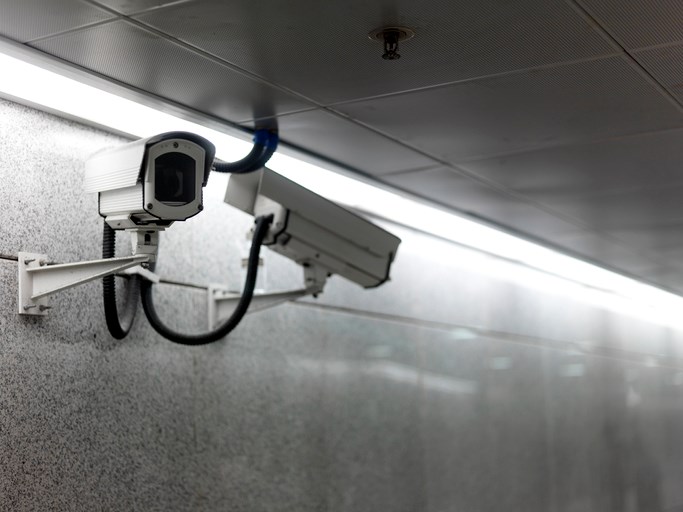A Coquitlam strata must establish a privacy policy to safeguard private information it collects through video surveillance.
That's the upshot of a Oct. 26 Civil Resolution Tribunal (CRT) order, posted online, which dealt with several complaints from a condo owner concerned that the strata council at his building was making decisions about common property without a vote.
Jason Greene brought his concerns about video cameras installed on the premises at Grand Central, a three-tower condo residential development with ground-floor commercial at 2978 Glen Drive.
He was concerned about the lack of a vote to permit the cameras on a commercial property, as well as a lack of a vote to permit the commercial property owner to glass in a patio.
Some of his complaints were about loss of privacy due to the widespread use of video surveillance on the property, as well as audio collection.
Greene sought orders to have commercial video cameras taken down and a privacy policy be established for those on strata common property.
He also wanted signage indicating the presence of video surveillance and the strata to disable audio on its security cameras.
Condo owner complains privacy violated
"He says the strata routinely enforces bylaws based on video surveillance from both its own security cameras located on common property and the commercial owner’s cameras," CRT member J. Garth Cambrey noted in his decision.
Meanwhile, the strata said it needed the video camera surveillance for safety and crime prevention, and that it had the authority to make an agreement with the commercial strata owner.
In adjudicating the complaints, Cambrey acknowledged that the strata was allowed to put up video cameras, but said it must meet Personal Information Protection Act (PIPA) regulations, including protecting personal information from "loss or risk."
"I find the strata must also prepare written policies and practices relating to complying with and responding to complaints arising from PIPA (privacy policy). Therefore, I order the strata to prepare a privacy policy that meets the full requirements of PIPA," he stated.
Patio enclosure a "significant change"
As to the cameras on the commercial property, the CRT said they didn't have a "significant" impact and could stay, but a three-quarter vote was necessary to permit a patio enclosure, due to it being a "significant change" to common property.
However, a number of issues raised by Greene were in the strata's favour.
For example, it won't have to put up "video surveillance in use" signage or disable audio due to the fact that governing legislation is not in the CRT's jurisdiction.
But Cambrey left the door open stating that not doing so could be in violation of PIPA or the Criminal Code if, for example, protection of privacy policies aren't in place for collecting audio.
The CRT also dismissed the complainant's dispute over the use of parking spaces, with the CRT laying out past history over commercial and visitor spaces, saying the bylaw stands, unless it's struck down by a claim being dealt with in Supreme Court.
90 days to prepare privacy policy
As the condo owner was partially successful in his two disputes, the strata was ordered to pay half of his $550 CRT fees.
The strata has 60 days to hold a vote on the commercial patio enclosures and 90 days to prepare a privacy policy for video camera surveillance that meets the PIPA requirements.





